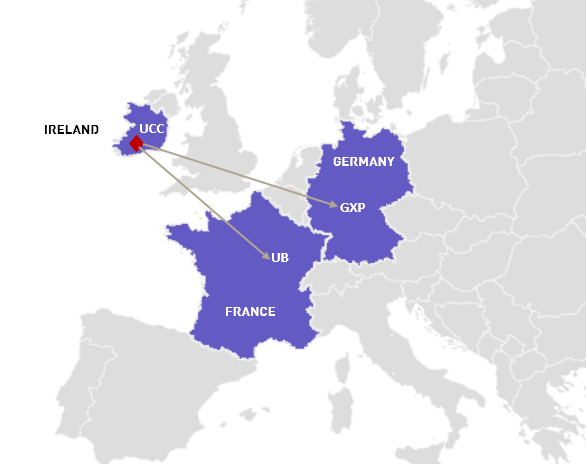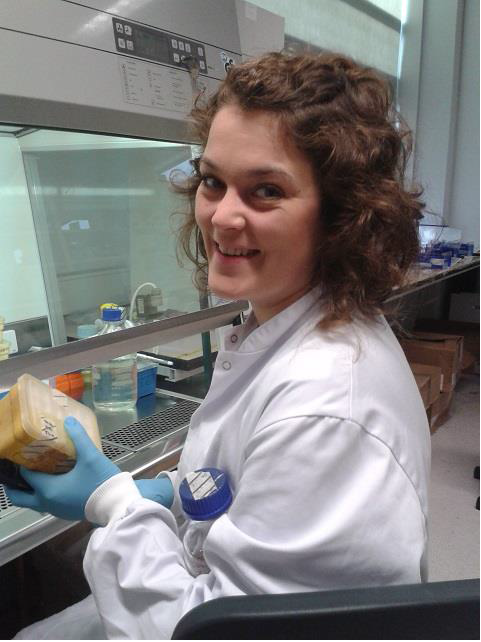PRÉSENTATION DU PROJET INDIVIDUEL 2
Stress pre-adaptation and virulence potential of L.monocytogenes in the food matrix
ORGANISATION D’ACCUEIL ET SUPERVISEUR:
Université de Cork, Dr. Cormac GAHAN (plus de détails)
OBJECTIFS:
The project will examine the effects of important food components (including glutamate, arginine and carnitine) upon virulence potential in L. monocytogenes. The ESR will utilise the ECadhum transgenic mouse system as a means to study the influence of food constituents upon pathogenesis using the pathogen in suspension (+/- specific food components) and also using special defined chow containing particular food components as additives (from Teklad/Harlan custom diets). The ESR will utilise classical microbiological approaches as well as bioluminescent imaging of L. monocytogenes to track the pathogen in this system (IVIS system luminescence imaging). The ESR will also use deep sequencing approaches to determine the effects of food constituents upon gene expression profiles in L. monocytogenes with a particular focus upon gene systems known to be induced in vivo during growth in the GI tract and necessary for virulence (e.g. SigmaB, BSH, bile, ADI, OpuC, GAD etc).
RÉSULTATS ATTENDUS:
Global transcriptomic response to food matrix constituents . Determination of TSS. Identification of proteins critical for survival in this habitat.
SECONDMENTS:
GenXPRO (plus de détails) et l’Université de Bourgogne (plus de détails)
DURÉE DU RECRUTEMENT:
36 mois
PRÉSENTATION DU CHERCHEUR
Vanessa LAS HERAS
FORMATION:
- Licence en biotechnologie à l’université Algarve, Portugal
- 3ème année de licence avec le programme d’échange ERASMUS, à l’université de Lund, Suède
- Master en biotechnologie, université de Lund, Suède
CONTACT :
(plus d’informations sur la page anglaise)
![]() Ce projet est financé par les actions Marie-Sklodowska Curie du programme de recherche et d’innovation de l’Union européenne Horizon 2020 selon l’accord de subvention n°641984
Ce projet est financé par les actions Marie-Sklodowska Curie du programme de recherche et d’innovation de l’Union européenne Horizon 2020 selon l’accord de subvention n°641984


